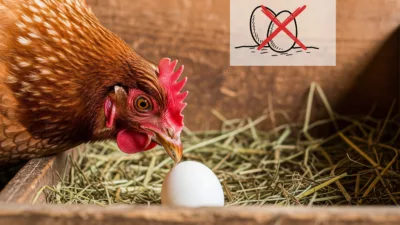If you’re new to homesteading or raising backyard chickens, one common question often comes up: Can you wash fresh eggs before storing them? Understanding the best way to handle fresh eggs is essential to maintain their freshness, safety, and shelf life. In this detailed guide, we’ll explore whether washing fresh eggs before storing is recommended, how it affects egg quality, and the best practices for egg storage.
Why Do People Wash Fresh Eggs?
Eggs laid by backyard hens often come with natural dirt, feathers, or manure. It’s natural to want to clean these eggs before bringing them inside or placing them in your refrigerator. Washing eggs can make them look more appealing and seem cleaner, especially if you’re selling or gifting them.
But the key question remains: Is it safe to wash eggs before storing?
The Natural Egg Bloom: What Is It and Why It Matters
Freshly laid eggs are coated with a natural protective layer called the bloom or cuticle. This thin film seals the eggshell’s pores and helps keep out bacteria, dust, and moisture. The bloom plays a crucial role in preserving egg freshness and preventing contamination.
When you wash eggs, especially with water that’s cooler than the egg’s temperature, you risk removing this protective layer. This can make the eggs more vulnerable to bacteria like Salmonella and shorten their shelf life.
Can You Wash Fresh Eggs Before Storing? Key Considerations
- If You Plan to Use Eggs Quickly
Washing eggs just before use is generally safer than washing them right after collecting. If eggs are only lightly soiled, you can wipe them gently with a dry cloth or a soft brush and leave the bloom intact until you’re ready to cook or sell. - Washing Eggs Correctly if Necessary
If eggs are visibly dirty and need washing, use warm water that’s warmer than the egg temperature (about 90-120°F or 32-49°C). Warm water helps prevent the egg from pulling bacteria inside through the shell pores. Avoid soaking eggs, just rinse gently, and dry them immediately with a clean towel. - Using Commercial Egg Wash or Sanitizers
Some homesteaders use specially formulated egg wash solutions or mild sanitizers designed to clean eggs without damaging the bloom excessively. These are available from farm supply stores and can be safer than plain water washing. - Avoid Washing Eggs Early If You Store at Room Temperature
In many countries, eggs are stored unrefrigerated, relying on the bloom for protection. Washing early can increase spoilage risk. If you live in a warmer climate or prefer room temperature storage, keep eggs unwashed until use.
How to Store Eggs Properly After Washing
- Refrigerate Eggs Immediately: If you wash eggs, refrigerate them right away to slow bacterial growth and keep them fresh longer.
- Use Clean Containers: Store eggs in clean cartons or containers to prevent cross-contamination.
- Keep Eggs Pointy End Down: This position helps preserve the yolk’s freshness and maintains the air cell inside the egg.
- Avoid Frequent Temperature Changes: Eggs last longer when kept at a consistent temperature.
What About Unwashed Eggs?
Unwashed eggs with the bloom intact can be safely stored at room temperature for up to two weeks or refrigerated for several weeks longer. Many homesteaders prefer this method to maximize egg freshness and reduce the risk of contamination.
Final Thoughts: Can You Wash Fresh Eggs Before Storing?
Yes, but with caution. Washing fresh eggs before storing is not always necessary and can sometimes do more harm than good if done improperly. For the safest and longest-lasting eggs:
- Only wash eggs right before use.
- Use warm water and dry eggs immediately.
- Refrigerate washed eggs promptly.
- Leave the natural bloom intact whenever possible.



